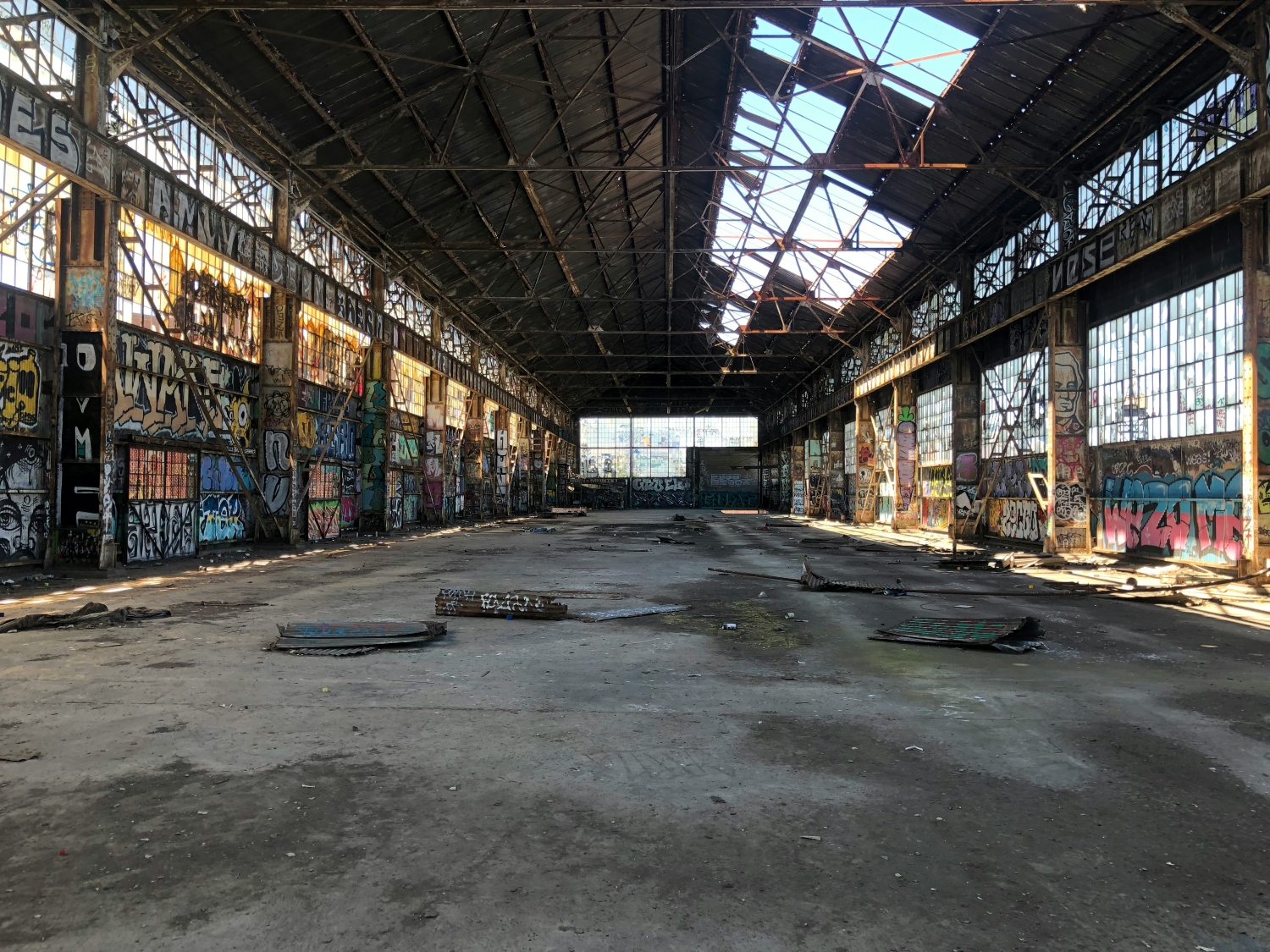
Explore how you can protect your empty properties with Vacant Property Checks from The Keyholding Company.
When a commercial property is empty, it’s easy to assume that locking the doors and setting the alarm is enough.
In reality, vacant buildings are magnets for risk – from water leaks to squatters, fire hazards to asset stripping or vandalism. And for most property owners and facilities teams, those risks aren’t just inconvenient – they’re expensive, disruptive, and potentially uninsured.
There are many ways to protect a vacant property from these risks, but one of the most effective and versatile approaches is using Vacant Property Checks (VPCs).
Whether you’re managing a single unoccupied unit or an entire estate of temporarily closed sites, we’ll explain what VPCs are, why they matter, and how they can form a key part of a smart, layered protection strategy – when paired with the right support measures.
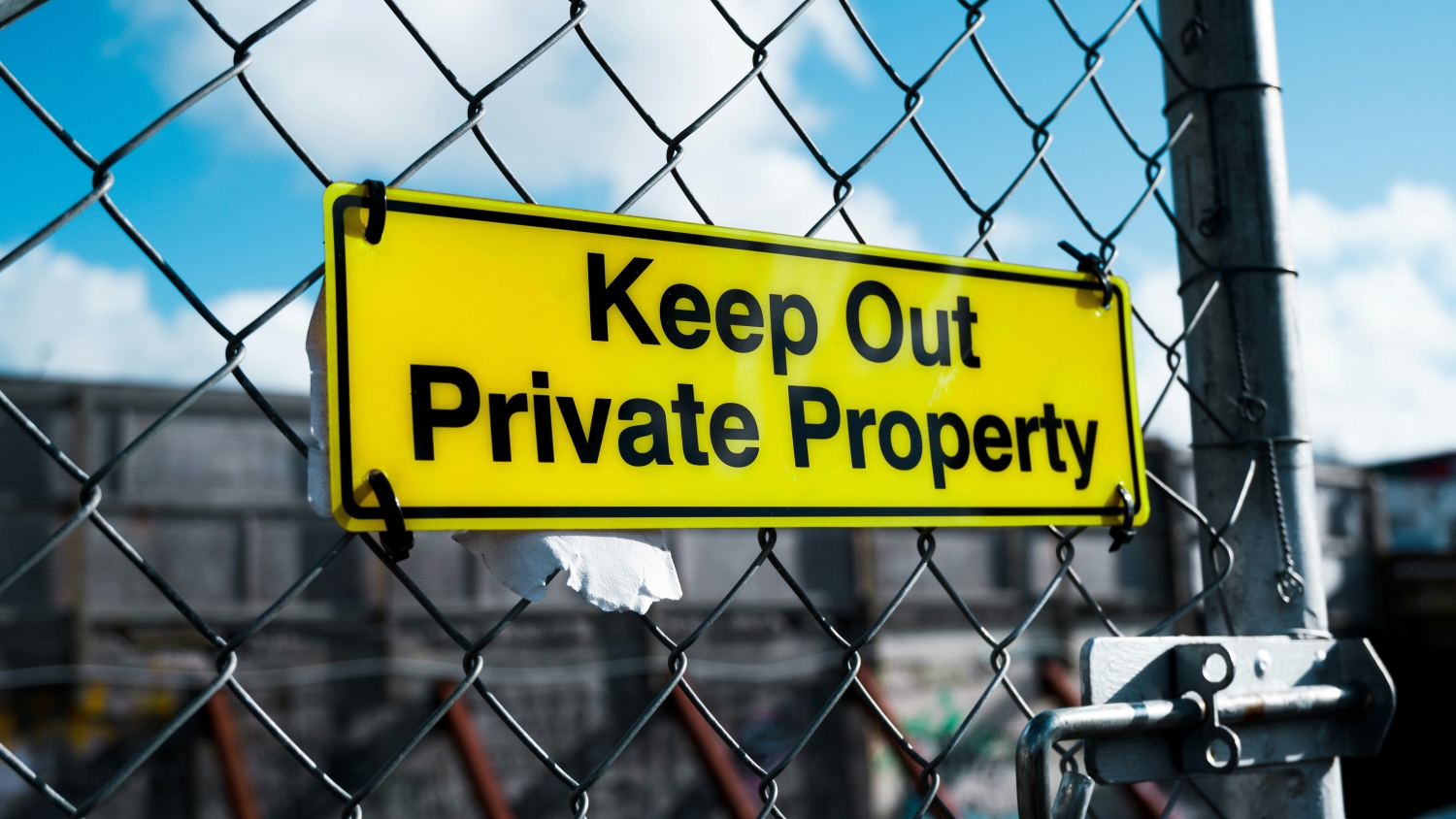
Why Vacant Property Checks are Essential – from Risk to Insurance Compliance
It doesn’t take long for a vacant property to become a liability.
The signs might start small – a leak that goes unnoticed, or rubbish dumped at the perimeter. But left unchecked, they can escalate into serious issues: environmental damage, costly repairs, or even criminal activity.
Clearing squatters from a site, for example, can cost upwards of £20,000 in legal, security and clean-up fees. The cost of removing unauthorised traveller encampments is potentially very significant, but can vary depending on factors such as the size of the encampment, the occupants’ cooperation, the duration of stay, the extent of waste left behind, and the amount of stripping or damage done to the property.
Water system failures can result in extensive damage and even create public health risks, like legionella from stagnant plumbing. A simple fly-tipping incident can signal to opportunists that the site is unmonitored – increasing the risk of break-ins or further vandalism.
But even when nothing goes visibly wrong, failing to inspect your site properly can still come at a cost.
Most insurers now require regular, time-stamped checks of unoccupied properties as part of their coverage terms. Without proof, even minor claims can be rejected outright – leaving businesses to cover the full cost of damages themselves.
And it’s not just about insurance. Attending a vacant site can be unsafe – particularly for lone workers or untrained staff. Outsourcing VPCs to qualified professionals means less internal workload, lower risk, and greater peace of mind.
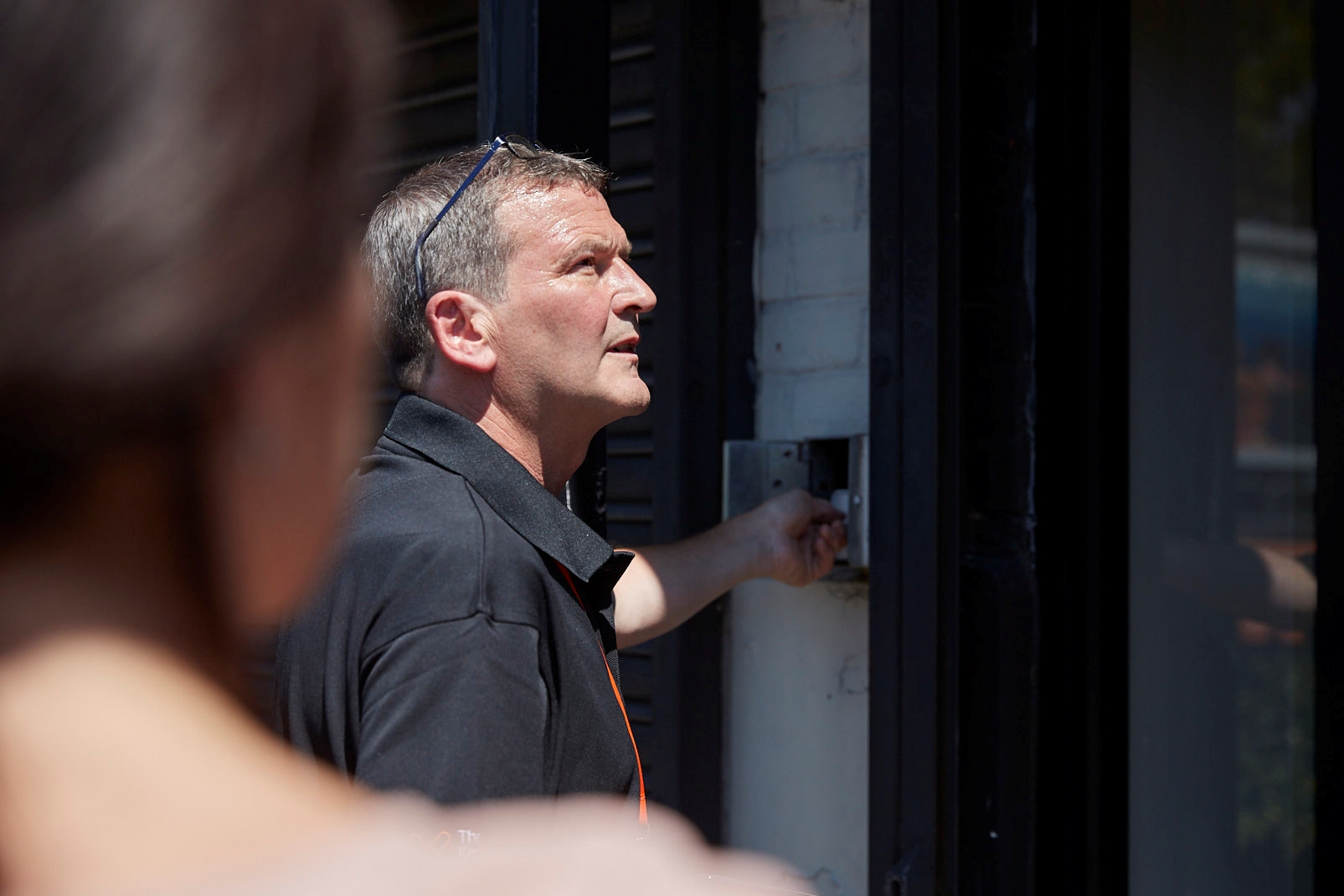
What are Vacant Property Checks – and How Do They Work?
Vacant Property Checks are scheduled physical checks carried out by trained security officers. The goal is to confirm that the property remains safe, secure, and in good condition.
During a VPC, officers will usually assess:
– All access points (doors, gates, windows) for signs of damage or forced entry
– The perimeter and grounds for fly-tipping, vandalism or trespassing
– Internal areas for leaks, fire risks or health hazards
– Utility meters or equipment to ensure systems are operating safely and take readings
– Alarm systems and signage for proper function and visibility
Some checks follow a fixed weekly schedule, while others are carried out at randomised times to avoid creating predictable patterns that could be exploited by opportunists.
The real power of a VPC lies in having trained eyes on the ground. Unlike some visual verification tools, officers can spot problems in real time and action can be taken immediately, be it organising boarding, dispatching engineers or contacting emergency services to contain the risk fast.
The outcome is a time-stamped, auditable record of the visit – often including photographs and officer notes – that helps property owners meet insurance conditions and spot emerging issues before they escalate.
The value of a VPC isn’t just in checking the right things. It’s about catching the wrong things before they become major problems.
Charlie Smith – Senior Account Manager, The Keyholding Company
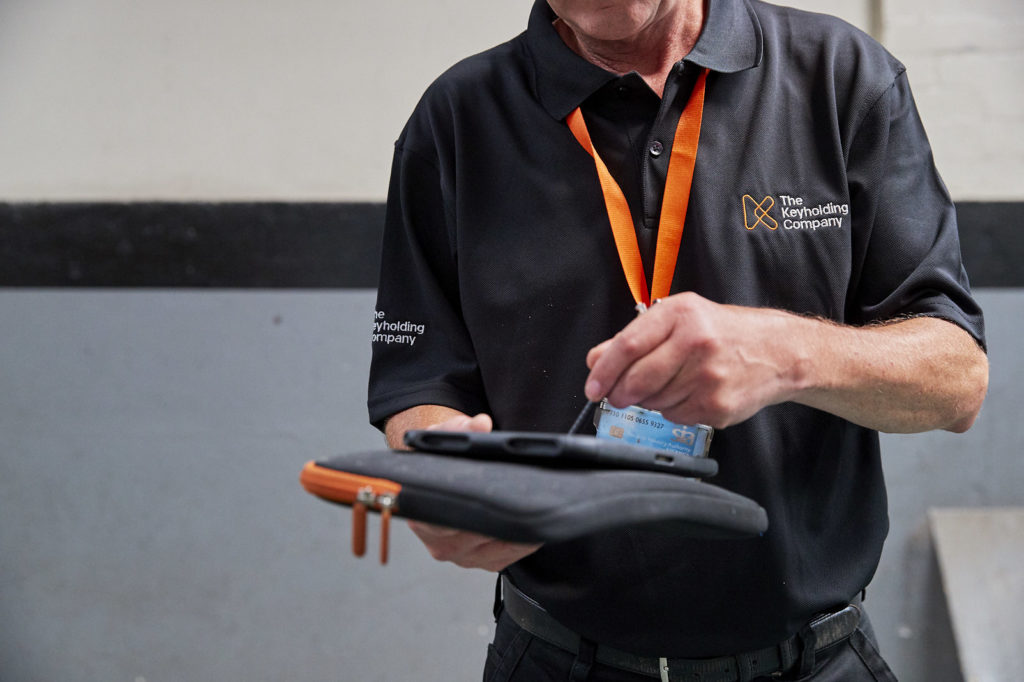
What to Look for in a VPC Provider
With insurance compliance, operational risk and site security on the line, it’s critical to choose a provider who can deliver quality consistently. Here’s what to look for:
1. Nationwide coverage, delivered consistently
When you’re managing vacant properties across a wide and varied estate, you need a provider who can do more than just tick boxes. You need consistency – in coverage, in compliance, and in the calibre of the people on-site.
That’s often easier said than done. Vacant sites can be tucked behind business parks, scattered across rural postcodes, or in hard-to-reach areas where many providers struggle to operate. And when a provider relies on a patchwork of subcontractors, it’s not just geography that varies – it’s standards, too.
What should you look for in a provider?
– National reach, backed by local expertise – so even remote or hard-to-access sites are covered
– A fully vetted supply chain, with officers who are trained, SIA-licensed and ready for site-specific tasks
– A provider who keeps you informed – with clear reporting and performance updates so you don’t have to chase
– A partner that actively manages service quality, so you don’t have to micro-manage the details
At The Keyholding Company, we’ve built our service model to deliver exactly that. Our nationwide network of 200 ACS-accredited partners gives us 99.8% UK postcode coverage – enabling us to carry out 43,000 VPCs per year with the same standards, no matter the location.
Every officer we deploy is SIA-licensed, trained for the task and equipped with local knowledge.
Coordinating thousands of VPCs each year takes real operational precision – and that’s exactly what our model is built for.
Danny Vant – Managing Director, The Keyholding Company
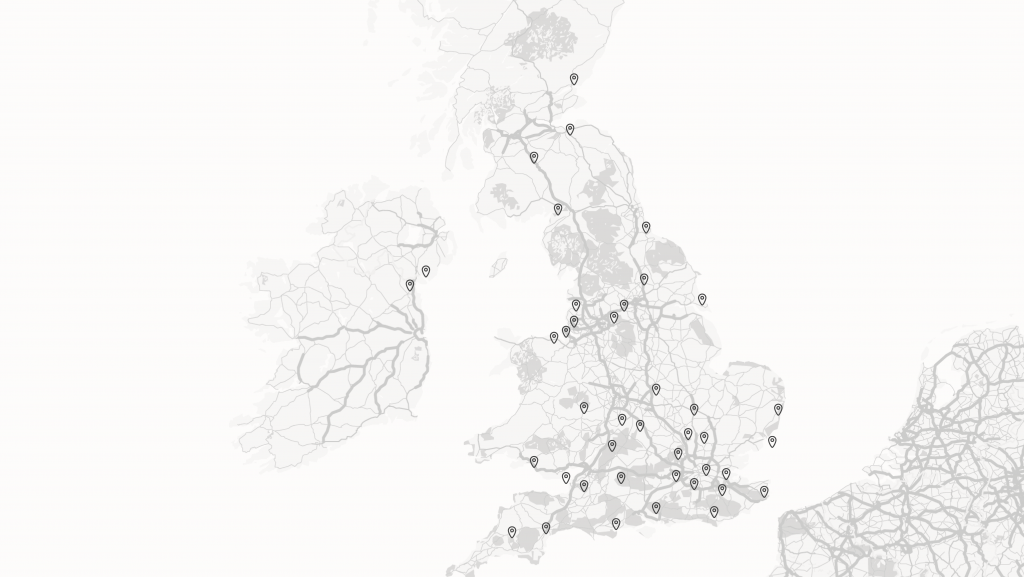
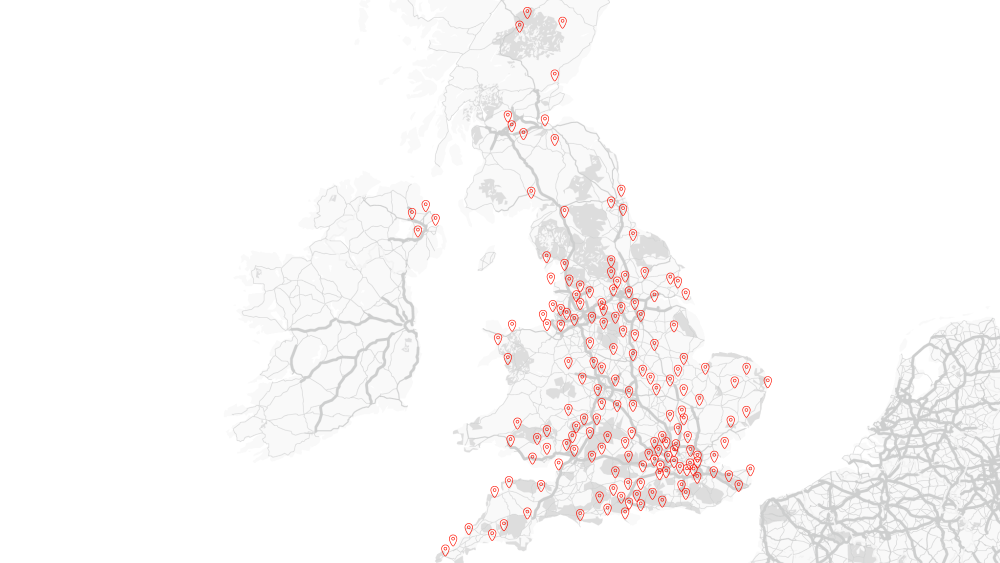
Above: a traditional network model (~45 operating bases) vs The Keyholding Company’s network model (~200 operating bases)
2. Clear, consistent reporting that protects your business
When it comes to vacant sites, you don’t just need the checks to happen – you need to prove they happened.
As we’ve touched on, insurers increasingly require time-stamped evidence that checks have been completed correctly and on schedule. And if something goes wrong – from a leak to a break-in – your ability to claim and recover costs often depends on having a clear, auditable trail.
But this isn’t just about ticking an insurance box. It’s about giving you full confidence that your site is being looked after properly – without ambiguity, gaps, or grey areas (which most VPC providers can’t provide).
That’s why our reporting process is built for rigour.
Every VPC is logged digitally via our platform. Officers complete site-specific checklists – defined by you – using our app to upload photos of key checkpoints and leave detailed notes where required.
These images are automatically scanned by our AI vision model – an advanced tool that verifies not just presence, but context. If the task is to take an ‘internal photo’, the AI will check that the image contains identifiable indoor elements and flag anomalies that don’t meet the criteria.
Before a report is finalised, our in-house team reviews any flagged issues to ensure quality and help find a resolution. If something’s wrong – whether it’s a fallen door or a forced entry – we can act fast, calling emergency services or organising urgent support to resolve the incident in real time.
After each job, a full report is delivered straight to you. The result? Proof of service you can trust – and a clear audit trail every time.
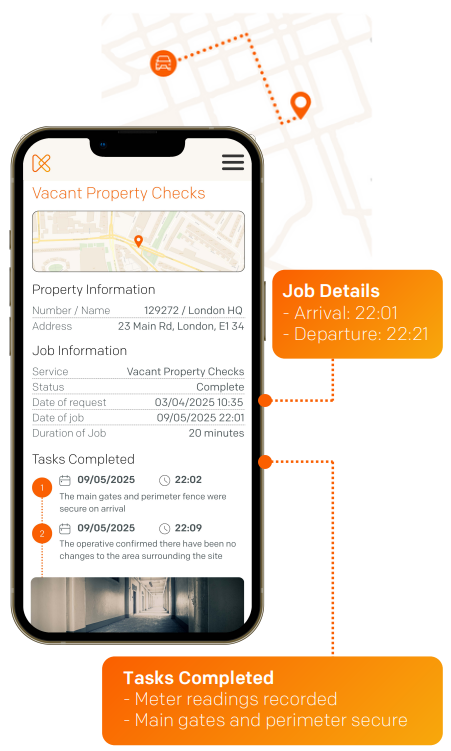
3. A flexible approach built around your estate
No two properties carry the same risk – so why settle for a one-size-fits-all check?
Some vacant sites need daily checks. Others, weekly. Some have complex layouts with high-value assets, while others simply need the basics. If your provider can’t flex to these nuances, you could end up missing critical VPCs – or paying for services you don’t need.
That’s why flexibility isn’t a feature – it’s a fundamental.
We work closely with clients to design a VPC schedule that reflects the specific needs of each site. Typically, the schedule is random to avoid pattern recognition, but our service is designed to move with you, from setting attendance frequencies and customising checklists for each site, to changing visit days at short notice.
Of course, VPCs aren’t the only option for protecting empty buildings. We have the skillset and knowledge to make recommendations on site-specific risk, then help you build the best protection solution impossible.
Flexibility is essential when you’re dealing with dynamic estates. Our job is to make protection seamless, proposing the appropriate solutions based on the bespoke and nuanced needs of each site, and adapting the solution as risk levels change.
Danny Vant
This can include combining VPCs with solutions like wireless CCTV, alarm monitoring or battery-powered visual verification systems – where motion detection triggers a short video clip sent directly to a Control Room. High-deterrent measures like boarding, bollards and steeling are also recommended for added resilience.

And for those managing large estates? We make it simple to create a cohesive security solution that brings multiple services together – integrating VPCs with keyholding & alarm response, or enable controlled third party access for contractors. One point of contact. One operating model. Full protection.
We don’t just show up and tick boxes. We partner with you to build a security model that works – every day, at every site.
Vacant Doesn’t Mean Forgotten – Don’t Leave it to Chance
A vacant site can go from secure to high-risk in a matter of hours.
Leaks. Squatters. Non-compliance. The costs add up fast – and without the right audit trail, your insurance might not cover a penny of it.
That’s why VPCs are best left to trained experts. Outsourcing to a trusted partner doesn’t just give you better protection – it also lightens the load on your internal teams and removes the risks of attending sites alone.
We deliver smart, flexible checks with digital reporting, nationwide coverage, and full peace of mind – so nothing slips through the cracks. Whether your property is temporarily closed, mid-refurb, or awaiting development, we’ll help you protect it with confidence.
Reach out to our team at sales@keyholding.com to learn more or request a personalised quote today.
Take control of your vacant property needs today
Contact us to discover how TKC can transform your approach to protecting vacant properties.
Get in touch

